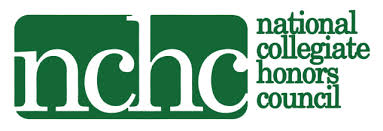Why Stuff does Stuff: Comprehending Physics
Science in the 21st Century - HNRS 2331
Instructor(s): Carmen Sorge
Course Description
The most exciting phrase to hear in science, the one that heralds new discoveries, is not 'Eureka!' (I've found it!), but 'That's funny...' - Isaac Asimov
This course is about understanding physics in the world around you. Many students have the impression that science (physics in particular) is a bunch of rules discovered a long time ago by a bunch of boring dead white guys. Nothing could be further from the truth. Physics has a huge impact upon our daily lives, many issues including energy use, safety procedures and government regulations are based on physics principles. Understanding basic physics and learning to read and interpret scientific information critically will allow you to make decisions based on sound scientific reasoning. You might be thinking physics is just another name for math class. Not in this class. The ability to plug numbers into an equation, and chomp through them is not physics. You will need to use a little math in this course, but this course is not ABOUT math.
Scientists are not handed a lab worksheet to fill in when doing research. Like scientists, you will utilize the scientific method to produce hypotheses based on experimentation. This course is for students who want to DO science and understand how to critically read and discuss scientific concepts (rather than memorize science facts). Our topics will vary and will include both basic physics fundamentals such as optics, radioactivity, motion and energy conservation and others. Three short class presentations are required. One is on examining physics observable in the real world. The second involves finding physics demonstrations and concepts on the web. The third is a physics demonstration for your classmates. You will be participating in hands-on experiments in the classroom demonstrating physics principles and writing up a report on each lab. Most class periods you will have a short reflection due on the assigned reading, which we will discuss in class. This is a very interactive class, with lots of hands on work and discussion.
*Please note that HNRS 2331 & HNRS 2331L (4 credit hours total) satisfies the Physical and Natural Sciences category of the UNM General Education requirements, but it does not serve as an official prerequisite to other physics classes and will not satisfy specific physics requirements for major or minor programs without the direct approval of that program. Please contact your major or minor advisor if you have any questions about their physics requirements.
Texts
The required book is For the Love of Physics: From the End of the Rainbow to the Edge Of Time - A Journey Through the Wonders of Physics by Walter Lewin
We will be reading sections from texts such as those listed below as well as from current scientific journals. These will be available online.
Richard A. Muller, Physics for Future Presidents: The science behind the headlines Richard Feynman, Six Easy Pieces: Essentials of Physics explained by its most brilliant teacher
Christopher P. Jargodzki and Frankin Potter, Mad about Physics: Brain twisters, Paradoxes and Curiosities
Requirements
Regular attendance and active class participation and daily reading assignments with reflections are expected.
Three short class presentations are required. One is on examining physics observable in the real world. The second involves finding physics demonstrations and concepts on the web. The third is a physicsdemonstration for your classmates. Experiments in the classroom and writing up a report on each lab are required.
About the Instructor(s): Carmen Sorge
I have taught both physics and mathematics from middle school level through college. I have a Ph.D in Educational Psychology, a M.S. in Science Education and a B.S. in Physics.
I have been teaching for thirty plus years, and through that time have come to realize that the content matters but the love of learning is what will remain many years later. I aim to install a love (or at least tolerance) of physics into your brain. As Carl Sagan said “Science is a way of thinking much more than it is a body of knowledge.[Text Wrapping Break]Carl Sagan (1934 - 1996)”.
In this class we will cover many topics in physics, when you finish I hope for you to have, not just a better understanding of physics, but an appreciation for how physics is part of everyday life. Years from now, when a little kid asks you “why is the sky blue” I want you to think, “Hey, I remember something about that from Dr. Sorge’s class, let me refresh my memory”. I want you to see a rainbow, and not just think “cool colors” but “I know how that rainbow is formed”.



Social Media
For news, information, prizes and more fun stuff follow us on our social media!
Honors College Resources